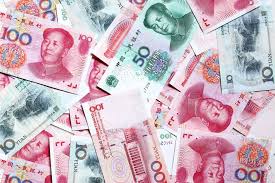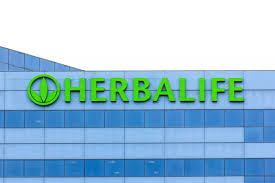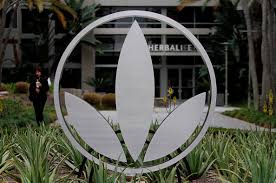Herbalife’s China Bribery Scheme (Part II of III)

Herbalife’s bribery scheme in China stretched across the 28 provinces of China and even involved an Herbalife senior executive in its headquarters in Los Angeles, California. DOJ has indicted Yangling Li, aka Jerry Li, and Hongwei Yang, aka Mary Yang, two Chinese nationals who carried out the scheme.
The Statement of Facts provides some important details about the scheme. Herbalife’s business in China depended on its ability to secure direct selling licenses at the national and local level, including China’s 28 provinces. During the period March 2007 through March 2016, Herbalife secured and maintained direct selling licenses nationally and in the 28 provinces.
In addition to the government agencies responsible for licensing (collectively, “Chinese Government Agency 1”), various provincial and central levels of a Chinese government agency (collectively, “Chinese Government Agency 2”) were responsible for enforcing compliance with Chinese laws applicable to direct selling companies. The bribery scheme extended to a State-Owned Media Outlet, a media company that published articles about business and other issues in China.

Jerry Li eventually became the most senior executive at Herbalife in China. Mary Yang was a high-level executive at Herbalife China and the head of Herbalife’s External Affairs Department during 2006 to 2017. Li and Yang, along with two other China Executives, 1 and 2, carried out the bribery scheme in China.
Initial Direct Selling License and Investigations
Starting in 2006, Herbalife China applied for its first direct selling license for two cities in one province. In conducting its review of the license application and associated investigation, Chinese Government Agencies 1 and 2 worked together to determine whether to grant Herbalife’s initial application. During a four-month period, ending in March 2007, Herbalife paid bribes and benefits to officials of the two Chinese Government Agencies.
For example, in 2006, Herbalife China was subject to a fine for operating a store in a provincial capital for violating regulations. Two sales managers, in coordination with Mary Yang, negotiated with government officials to pay bribes to lower the potential fine.
Later in the same year, Li approved Yang’s payments of “red envelopes” (“cash payments”) to Chinese Government Agency 2 officials and secured reimbursement from Herbalife China for these cash payments through false reimbursement requests.
In January 2007, Li and Yang discussed that Yang had “taken care of” a Chinese Government Agency 1 official before Yang had to address questions relating to Herbalife China’s pending direct selling license application for the province. Li stated, “The money works well on him!”
In March 2007, Li and Yang orchestrated payments to various Chinese Government Agency 2 officials to minimize future penalties against Herbalife China.

During the same month, Yang told an employee to distribute gift cards (approximately $10,000) to Chinese government officials involved in Herbalife’s pending direct selling license application in the province.
The next day China Executive spoke to an Herbalife Executive in Los Angeles. The China Executive described how Herbalife China had obtained a license for two cities and planned to obtain licenses in other provinces. The China Executive raised concerns about compliance with a recent policy change that restricted entertainment expenses to no more than six times in one year for any Chinese government official. In response, the Herbalife Executive suggested that the Chinese official falsify the details of the requests and associated expense reimbursements, explaining that the auditor will never verify the details in the receipts.
Additional Payments and Gifts to Government Officials
After obtaining the first direct selling license, Li and others made additional improper payments and gifts to Chinese government officials and falsely recorded the expenses.
In May 2007, Yang and China executives arranged for payment of approximately $3000 to a Chinese government official to reduce a government fine of approximately $16,000.
In January 2012, External Affairs employees arranged for the submission of $87,000 of fake meal and gift invoices.

In September 2012, Yang reported to Li that she had spent 20,000 Yuan on a shopping trip and a spa visit for a Government Agency 2, along with his daughter and her classmates. Later that same year, Yang and Li arranged to provide false documentation that a son of a Chinese government official had completed an internship at Herbalife.
In April 2013, Yang told Li that she had met with an official at State-Owned Media Outlet and provided food and drink to convince the official to withdraw several unflattering articles.
Yang and other External Agency employees routinely falsified expense reports and receipts; for example, during a six month period in 2012, Yang received $772,433 in reimbursement for allegedly entertaining 4,312 government officials at 239 meals (more than one meal per day) and $248,622 in reimbursement for purported gifts to Chinese officials.
The range of improper expenses covered numerous expenditures for expensive meals, alcohol, karaoke, and lavish gifts. On one occasion, a Herbalife official complained about government officials’ demands for expensive entertainment and gifts, noting that the government official candidly stated that the government officials could never leave an event “empty-handed.” Often executives and employees colluded to come up with fake names and expense reports.
Internal Audit Oversight Failure

The SEC’s settlement document outlines the failure of Herbalife’s Internal Audit to uncover the extensive fraudulent expense reporting and reimbursement documentation. The Internal Audit in China reported directly to the Internal Audit at corporate headquarters in Los Angeles, California.
The IA China conducted an audit of China’s External Affairs office twice annually, and reported its results to the IA in the US. The EA Audit Reports showed large expenses and identified violations of Herbalife’s internal policies relating to the FCPA, including fake receipts and verbal approval of expenses when prior, written approval had been required.
The SEC cited, as examples, EA Audit Reports for 2012 and 2015 revealed large amounts claimed for meals, gifts and entertainment ($3.7 million in 2012 for 6 months for 239 meals for a total number of 4,312 participants, averaging $3232 per meal; in 2015, 115 restaurant meals with government officials at an average cost of $1472 per meal). In the 2015 Report, IA China noted that External Affairs often replaced problematic receipts and had expended $811,465 without the corporate approvals required.
Two board members raised concerns about these IA reports and asked if the amount of these expenditures were “reasonable” under the FCPA. The IA Director noted that these findings were “typical” and are within “tolerance.”
Between 2012 and 2016, Herbalife reimbursed External Affairs employees for over $7.2 million in questionable meals and gifts for government officials in China.















